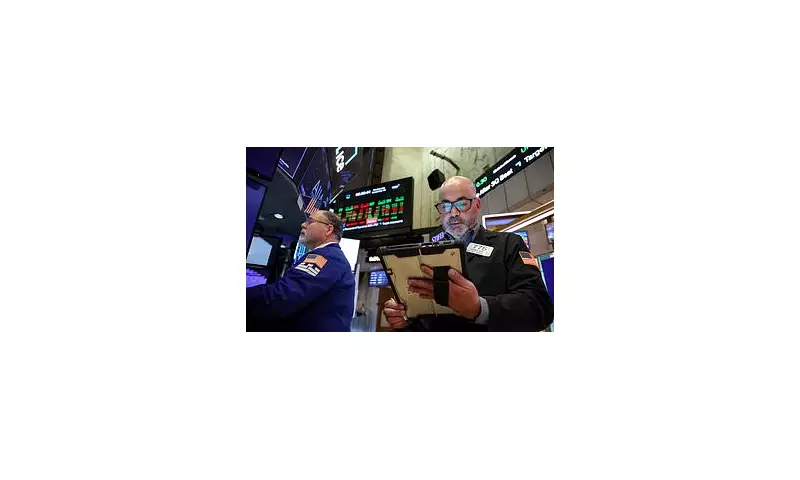
The American economy is bracing for one of its most critical 24-hour periods in recent memory, with three major events poised to define its trajectory through the end of the year. A potential $300 billion market swing from tech behemoth Nvidia, a vital health check on the US consumer from Walmart, and a long-delayed jobs report will collectively reveal the strength of the nation's economic foundations.
The timing is particularly fraught. Stock markets have been declining for a week, major technology companies have faced significant sell-offs, and analysts report that trader sentiment is now gripped by what they term 'extreme fear.' This palpable anxiety has prompted defensive manoeuvres from renowned investors, including Warren Buffett, Masayoshi Son, and Michael Burry of 'Big Short' fame.
The AI Linchpin: Nvidia's $5 Trillion Gamble
All eyes are on Nvidia, the world's sole $5 trillion company, as it prepares to report earnings. Analysts are calling this the most significant earnings release of the year. The chipmaker has become the undeniable linchpin of the artificial intelligence boom, responsible for powering nearly half of the S&P 500's recent gains.
However, its stock has slid into correction territory, and the stakes could not be higher. Data cited by the Financial Times indicates that options markets are pricing in a 6.4 percent swing in Nvidia's share price in either direction. This translates to a staggering $280 to $300 billion shift in market value, one of the largest potential single-day reactions in corporate history.
Julian Emanuel, chief equities strategist at Evercore ISI, noted, 'The angst around ‘peak AI’ has been palpable.' This volatility reflects a broader mood in Silicon Valley, where tech giants have invested tens of billions into AI infrastructure amidst growing doubts about the sustainability of such colossal spending.
Walmart: The Bellwether for the American Consumer
Just hours before the crucial jobs data lands, retail giant Walmart will unveil its own results. Many analysts argue these figures are every bit as critical as Nvidia's for gauging the true state of the US economy. The warning signs are already flashing; competitor Target recently slashed its forecast and warned of collapsing holiday demand, sending its stock price tumbling.
Walmart's performance will serve as a clear indicator of whether low- and middle-income shoppers are finally pulling back. The results will show if consumers are trading down to cheaper products, whether strong grocery sales are masking weakness in discretionary spending, and if family budgets have hit a wall. With consumer spending driving two-thirds of US GDP, a weak report from Walmart could tip the entire market lower—even if Nvidia delivers a perfect earnings report.
A Delayed Verdict: The September Jobs Report
Following the longest government shutdown in US history, which blacked out federal economic data, the Labor Department is finally set to release the September jobs report. This data lands at a delicate juncture for the Federal Reserve, which is split on whether to cut interest rates at its next meeting.
The report's findings will have immediate consequences for millions of Americans. Evidence of slowing hiring could push policymakers toward rate cuts, offering relief on mortgages, car loans, and credit-card debt. Conversely, strong employment numbers could lock in higher borrowing costs for longer. This data is especially critical given that consumer sentiment remains at some of its worst levels in years, despite a historically stable unemployment rate.
The outcome of this intense 24-hour period carries significant political weight for President Donald Trump, who has consistently prided himself on the strength of Wall Street and the broader US economy. How these three events unfold could very well define the economic, market, and political climate for the remainder of the year.





